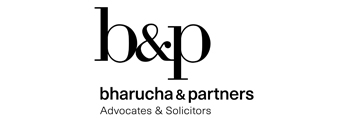The Securities and Exchange Board of India (SEBI) issued the SEBI (AF) Regulations, 2003 (regulations), to regulate unlawful, fraudulent and unfair trade practices in the securities market. The regulations give SEBI and the investigating authority appointed by it wide powers, similar to those of a civil court, to investigate alleged violations of the regulations.
The regulations stipulate that at the conclusion of an investigation the authority must submit a report to SEBI including all relevant facts. The authority may submit an interim report if necessary, in the interests of the investors and the securities market. SEBI must then consider the findings of the investigation report and, if satisfied there is a violation of the regulations, issue a show-cause notice and provide a hearing to the noticee.

Partner
Bharucha & Partners
As a matter of practice, SEBI has never disclosed investigation reports prepared by the authority to noticees on the grounds that they were interdepartmental communications between officers investigating the alleged violations. This has long been a contentious issue between SEBI and noticees but has now been resolved by the Supreme Court in T.Takano v Securities and Exchange Board of India & Anr.
The noticee, Takano, was the managing director and CEO of Ricoh India Limited, a publicly listed company for the financial years 2012 – 2013 and 2014 – 2015. SEBI issued an ex parte interim order cum show-cause notice (the interim order) against Takano alleging violations of the Securities and Exchange Board of India Act, 1992 (SEBI Act) and the regulations, and directed that a forensic audit be conducted.
Pending the forensic audit report, SEBI confirmed the interim order concluding that a clear picture would emerge when the investigation was complete (the confirmatory order). On appeal, the Securities Appellate Tribunal set aside the confirmatory order but granted SEBI liberty to issue a fresh show-cause notice against Takano if the forensic audit report and SEBI’s investigation revealed new evidence.
SEBI did issue a fresh notice against Takano alleging violations of the regulations. SEBI provided a copy of the forensic audit report, but refused to disclose the investigation report. Takano challenged the show-cause notice before the Bombay High Court and sought inspection of all documents in the alternative. The challenge failed and Takano appealed to the Supreme Court.
The Supreme Court recognised that the investigation report was integral to SEBI’s determination of the violations under the regulations. It also recognised that in order to determine what documents should be disclosed, courts must balance conflicting interests, such as access to justice and transparency against privacy, confidentiality and market interests. Analysing a number of judgements on disclosure, the court laid down two critical principles. The first is that a quasi-judicial authority has a duty to disclose material it relies upon at the adjudication stage. The second is that even if such authority had not relied on material, it would not be exempt from disclosing such material if it was relevant to and had a sufficiently close connection to the matter in dispute. The court held that if such material was likely to influence the decision of the authority, it should be disclosed.
SEBI argued that disclosure of the investigation report would affect the privacy of individuals named in it and that it would affect the securities market since it contained price-sensitive or strategic information. The Supreme Court ruled that such portions of the investigation report dealing with third-party personal information and strategic information affecting the functioning of the securities market need not be disclosed unless the noticee could show that such information was relevant for the noticee to defend their case.
These principles leave little room for SEBI to refuse disclosure of at least the investigation report and are welcome. However, the decision of the Supreme Court is crucial in upholding the fundamental principles of natural justice, transparency and a fair trial. A party may now use the principles laid down in Takano to require authorities to disclose all material relevant to advancing its defence.
Sneha Jaisingh is a partner and Aniruddha Banerji is an associate at Bharucha & Partners.

13th Floor, Free Press House,
Free Press Journal Marg
Nariman Point,
Mumbai – 400 021
India
Contact details:
Tel: +91 22 2289 9300
Email: sr.partner@bharucha.in


























